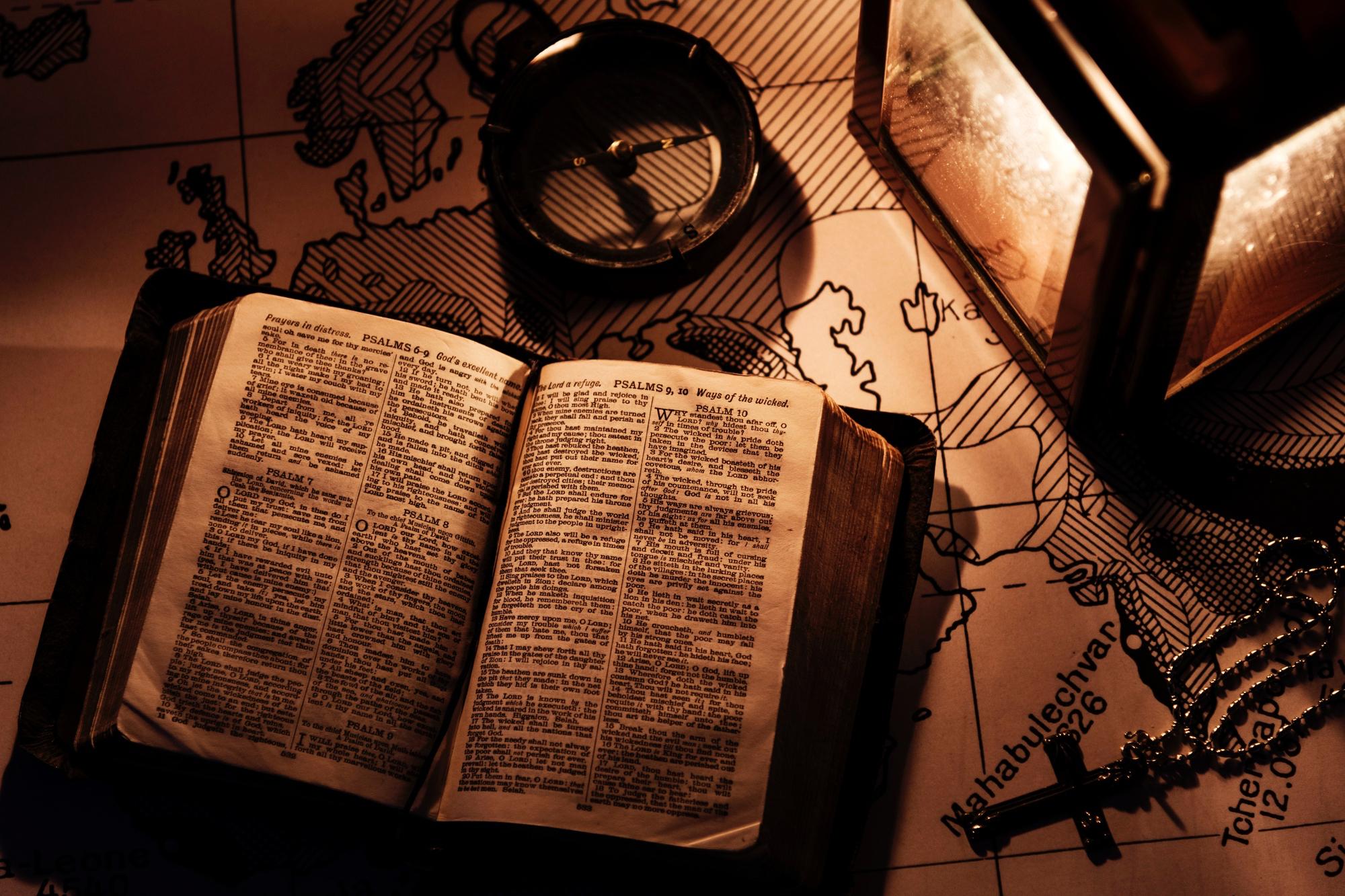Before we get to today’s article, I just want to mention that am writing from the perspective of a man that has experienced many of the challenges of which I write…. and those spiritual battles continue daily. The articles are implications of what it means to obey the commandment to raise your children in the discipline and instruction of the Lord. They require some reflection and are particularly for Christians who, as Peter would say, are diligently seeking to confirm their calling and are making every effort to supplement their faith. Said more succinctly, serious Christians. If you know other believers who desire to walk more faithfully with the Lord, please forward an article to them and tell them to sign up for future articles. Thanks so much!
I want to get to the Bible’s teaching on parenting children, I really do. But, as I was reading the Bible this week, I just couldn’t get away from the importance of recognizing the context in which the commandments were given. And it is meaningful to remember that God Himself, through the inspiration of the writers of the scriptures, has a perfectly wise roadmap that He intends to use to glorify Himself and impress our hearts. He is clearly intentional in the order of His words and in the emphasis on particular truths.
I’m here to tell you that I have been incredibly impressed by re-reading the book of Deuteronomy as a prelude to studying the commandments for parents therein. But “impressed” is not the right word. The word is convicted. I am convicted and ashamed that my God is but a miniature version of the true God of the Bible. Don’t get me wrong- my God is big and awesome, but the true God of the Bible can only be adequately described in words that do not exist.
So, please join me in thinking deeply about God’s word as I take a very brief look at the first few chapters of Deuteronomy in bullet form. This is a kind of restart for the Israelites. They have been waiting for the Lord to give them a second opportunity to go into the Promised Land and before they cross that river, Moses is going to lead them in a condensed review of history and the law of God.
It is extremely important to look back to see what God has done before they move forward, and that exercise is no less beneficial for God’s people today. In Deuteronomy 1:10, Moses begins by stating that God had promised Abraham to multiply his offspring like the stars of heaven and here it is stated that God has done just that. Can we even begin to get our minds around that achievement? Can we think about all that God had providentially done to make that happen, that God was sovereign over marriages that had to take place, children that had to be raised healthy to adulthood, more marriages had to take place, and every intimate moment of conception within those marriages, over generations? If this is all God ever did, it would be enough to make us bow down and worship!
Moving on to verses 26-39, we have to ask- how holy is our God? He is holy, holy, holy. He had shown His greatness to the Hebrews and yet they refused to believe and obey Him by not going into the Promised Land. In His righteous anger, God decides that every man except two (Caleb and Joshua) that had not trusted God, will die in the wilderness over the next 40 years. It will, in fact, be the deaths of 602,000 men. Sadly, this prohibition also included Moses, the great leader of the people. Moses will not be permitted to enter the Promised Land because of a display of sinful anger and disobedience before the people. But even in this moment, God shows His undeserving grace by stating that although the men will not inherit the land, their children and little ones will.
In 2:7, God reminds them again that He has blessed them and been with them all the years and in 3:22, God restates that He will fight for them once again, right after He gives them victories over two regional Kings. He does this because He knows our frame and how weak our faith can be. Therefore, He shows them His power and faithfulness in order to bolster their confidence before they cross the river. What a gracious and almighty God we have!
In chapter 4, we begin to see what is most important to God and it begins with yet another warning. And this warning is more than a hint of what God sees as a top priority for His people.
In 4:3 a warning is given to not follow those 24,000 men who were killed at Baal-peor. What did they do? They bowed down to other gods. Idolatry, idolatry, idolatry. And no wonder that it is the first of the Ten Commandments that says, “You shall have no other gods before me.” God hates idolatry. Why? Because He is the one and only God that deserves all praise and worship. He burns with a holy jealousy for His glory.
We don’t get much further in the chapter before God warns again regarding idolatry in verses 15-19, and again in verse 23, followed by the consequences in verse 24 where we read similar to Hebrews 12:29, “For the LORD your God is a consuming fire, a jealous God.”
God is communicating a strong message about idolatry, and if we simply take note of the sheer number of times that God will warn against idolatry in the book of Deuteronomy, we would be wise to assess idolatry in our own lives. But you say, “I have no carved images.” Neither do I, but listen to Pastor Alistair Begg writing in his daily devotional:
“We must not kid ourselves that we are immune from the possibility of breaking this commandment. Many of us read it and picture people bowing down before statues or going through elaborate rituals, and those mental images assure us that we’re not in danger of violating it. Yet the commandments are not restricted to outward actions but also relate to the disposition of our minds and hearts. From this perspective, we may not be as far from those mental images as we assume. We may not have statues to which we bow down, but maybe we have segments of our lives that we keep away from God, preserving them under the authority of some other little “deity”—ourselves, perhaps.
Ask yourself: “Do I joyfully acknowledge God’s comprehensive claim on my life? Is God in charge of my family, my work, my relationships, my money, my dating, my use of time?” Take a close and honest look to see if there are portions of life you try to keep from Him.
In addition to keeping things away from God, another form of danger is functionally replacing Him. When we put our family, our job, our hobbies, or anything else in the place that is God’s alone, we violate the first commandment. To the degree that we allow anyone or anything besides obedience to God to direct our course day to day, we defy His law.
So we are not so safe from the possibility of breaking this commandment as we may think! While we must acknowledge the truth that there is one God, we must also beware our own ability to put things in His place. If we do not daily submit ourselves to Him and entrust the entirety of our lives to Him, something will take His place. We are made to worship. The question is, are you going to worship the living God or are you going to pretend there is another?”
Still in chapter 4 of Deuteronomy, we get further insight to God’s jealousy for His glory in verses 6 through 8 where the passage indicates that God’s intention for the Israelites was for them to be both the recipient of blessings through godly living as well as an observable glory of God to the nations. They were to be in the world, but not of it.
So, after multiple warnings against disobedience, particularly the sin of idolatry, there is one more thing that stands out to me before we get to the “children heavy” verses in chapter 6 and beyond in this book. Verse 9-10 says, “Only take care, and keep your soul diligently, lest you forget the things that your eyes have seen, and lest they depart from your heart all the days of your life. Make them known to your children and your children’s children— how on the day that you stood before the LORD your God at Horeb, the LORD said to me, Gather the people to me, that I may let them hear my words, so that they may learn to fear me all the days that they live on the earth, and that they may teach their children so.”
Then, in the same chapter and verse 40, “Therefore you shall keep his statutes and his commandments, which I command you today, that it may go well with you and with your children after you, and that you may prolong your days in the land that the LORD your God is giving you for all time.”
Two brief points:
- God commands obedience from His people, but in the same breath that He commands obedience, He always includes that the children must be taught the same. This is a top priority for God, and we must get our Christian minds on the same page with Him.
- God thinks generationally. That is, He knows that in order for His people to grow and do well, the next generation must be taught Who He is as well as all of His truth. Furthermore, He thinks of the implications of parents teaching their children so their children (verse 9) can teach their children, and so on.
We can see how disobedience to God’s revealed will played out in the Bible. In Judges 2, the Bible says this:
When Joshua dismissed the people, the people of Israel went each to his inheritance to take possession of the land. And the people served the LORD all the days of Joshua, and all the days of the elders who outlived Joshua, who had seen all the great work that the LORD had done for Israel. And Joshua the son of Nun, the servant of the LORD, died at the age of 110 years. And they buried him within the boundaries of his inheritance in Timnath-heres, in the hill country of Ephraim, north of the mountain of Gaash. And all that generation also were gathered to their fathers. And there arose another generation after them who did not know the LORD or the work that he had done for Israel. And the people of Israel did what was evil in the sight of the LORD and served the Baals. And they abandoned the LORD, the God of their fathers, who had brought them out of the land of Egypt. They went after other gods, from among the gods of the peoples who were around them, and bowed down to them. And they provoked the LORD to anger.
They chose the things (gods) of the world and did not teach the children as God had warned and commanded. Idolatry, idolatry, idolatry. Could this happen again to God’s people? Are we seeing it in our time? Think deeply about it.
Podcast: Play in new window | Download
Last modified: March 19, 2023




